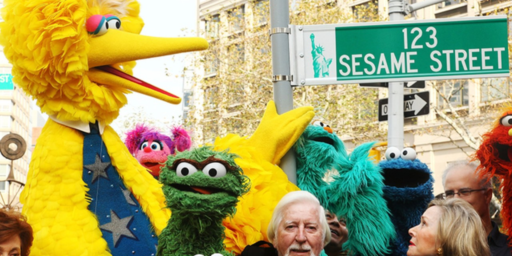California Court Rules That Yelp Can’t Be Forced To Remove Negative Comments
Federal law protects internet companies from liability for statements written by others.

In case that could have important implications for other Internet-based review and rating sites, the Supreme Court of California has ruled that Yelp cannot be forced to remove a negative review”
The California Supreme Court ruled on Monday that Yelp, the local search and reviews site, did not need to remove negative comments posted by a user, in a case closely watched by the industry for its implications for online free speech.
In a 4-to-3 opinion, the court said that federal law protected internet companies from liability for statements written by others. The decision to remove posts is at the company’s discretion, the court said.
Forcing a site to remove user-generated posts “can impose substantial burdens” on the online company, Chief Justice Tani Cantil-Sakauye wrote in the majority opinion. “Even if it would be mechanically simple to implement such an order, compliance still could interfere with and undermine the viability of an online platform.”
The role of moderating speech on online platforms has become a hotly contested topic, as the reach and influence of companies like Facebook and Google have grown. But the companies have long argued that the companies are not liable for posts published by others on their platform.
The case concerned a San Francisco lawyer, Dawn Hassell, who had accused a client of posting defamatory statements against her on Yelp. A San Francisco Superior Court judge ruled that the posts were defamatory and instructed the client and Yelp to take them down.
The order was upheld by both a second judge and a state appeals court.
Yelp argued that the lower court decisions could provide a legal pathway for businesses seeking to have negative posts removed. The company also referred to the Communications Decency Act, the 1996 federal law that protects internet companies from liability for third party users’ posts.
The act, the ruling said, is meant “to promote the free exchange of information and ideas over the internet and to encourage voluntary monitoring for offensive or obscene material.”
Yelp was joined by civil liberties groups, like the American Civil Liberties Union and the Electronic Frontier Foundation. The A.C.L.U. filed an amicus brief in the Yelp case in 2016, arguing that the removal order “requires Yelp to remove speech from its website without giving it any opportunity to argue that the speech in question is constitutionally protected.”
The Los Angeles Times provides the factual background for the case:
[T]he decision handed down Monday by the Supreme Court originated in an obscure 2012 slip-and-fall case. The plaintiff, Ava Bird, hired the law firm of Dawn Hassell. According to a lawsuit Hassell eventually filed against her client, the professional relationship lasted 25 days, during which Bird failed to return the firm’s emails and phone calls and missed a key appointment. Finally, Hassell sent Bird a polite email advising her to find another lawyer.
A few months later, Hassell asserts, Bird posted a broadside at the online review site Yelp accusing her of incompetence. Hassell sued Bird for libel and won a judgment for more than $550,000 in damages and costs, as well as an injunction ordering Bird to remove the ostensibly defamatory material from Yelp.
Bird didn’t respond, but the San Francisco trial judge also issued a default judgment ordering Yelp to remove Bird’s review. Yelp refused, arguing that the order overlooked its immunity from liability for what its users post on its review pages. That’s according to Section 230 of the 1996 Communications Decency Act, which protects online publishers that host user comments.
A state appellate court upheld the judge’s order, and so the matter landed before the Supreme Court.
On its merits, the courts ruling here makes sense. As a general rule, a site like Yelp that allows users to post reviews of local businesses can’t and shouldn’t be required to police individual posts. Not only is it impractical in the sense that it would require such companies to spend endless man hours trying to determine if and when a particular comment is inappropriate. This would seem to be especially true given the Federal law that Yelp cited in its defense, the Communications Decency Act of 1996, contains specific provisions that exempt internet companies from being held liable for posts made by third parties. This includes everything from user-generated content on a site such as Yelp to comments in a comment thread. On its face, that law seems to clearly supersede state laws on the issue, including state laws on defamation.
At the same time, though, this law leaves aggrieved business owners in something of a conundrum given the fact that they could end up getting a Court ruling that a particular post is, in fact, defamatory but without a remedy to get that post removed. For that reason, one legal scholar notes that the California Supreme Court’s ruling leaves many questions unanswered:
[A] California Supreme Court decision protecting the refusal of the online review site Yelp to remove several postings deemed to have defamed a San Francisco lawyer may have left too many questions about the rights and responsibilities of online platforms unresolved.
That’s the view of Eric Goldman, an expert on technology and marketing law at Santa Clara University who has followed the case closely during the two years it has meandered through state courts. He observes that the seven justices split 3-1-3 on the various issues raised by the parties in a lawsuit known as Hassell vs. Bird.
That’s a problem, considering that the central issue are the duties of an online platform—Yelp, in this instance–to police what gets posted on its website. “This case has gotten the attention of everyone who’s anyone in the user-generated content space,” Goldman told me in 2016. Among the friend-of-the-court notices filed at one point or another was a joint letter from Facebook, Microsoft and Twitter and another from 31 online and print news organizations, including The Times.
Such platforms “are instrumental in how modern society communicates,” Facebook, Microsoft and Twitter said in their letter, adding that they “receive thousands of requests every day seeking review or removal of content…Requesters seek to block speech because they disagree with or do not like it or because they believe it is threatening, obscene, fraudulent or in the present case, defamatory.”
Preserving the vibrancy of discussion online, they wrote, depends on upholding the rights that online platforms have to make their own judgments about the material they host without interference from the courts.
(…)
The four-judge opinion frowning on Hassell’s default judgment against Yelp is an important aspect of the case, Goldman says. If the Court had blessed Hassell’s strategy, “it would have opened the floodgates of plaintiffs seeking default judgments.” Online platforms already are arguably too willing voluntarily to take down content that someone objects to, even when their claims are dubious.
Giving complainants another tool to send ostensibly offending content to the memory hole would result in Web publishers publishing nothing even remotely negative. In the case of a review site like Yelp, only positive reviews would survive, destroying the site’s usefulness.
Still, Goldman fears that the 3-1-3 ruling leaves open many questions about how Section 230 should apply and how to define the role of online intermediaries like Yelp. Is it a neutral publisher of others’ opinions, and therefore entitled to immunity? Or did it “aid and abet” Bird, as Cuellar hints, taking it outside Section 230’s protection?
The lack of recourse for the victims of online libel or abuse “is on all our minds,” Goldman agrees. “Any of us could be the victim of an online attack.” But that isn’t really relevant in this case, he points out. Hassell did get recourse—she sued her attacker, and won a defamation judgment and an order that Bird take down the defamatory posts. But she hasn’t gone the last mile to enforce the order against Bird—instead, she tried to enforce it against Yelp, which she hadn’t sued. (Hassell and her attorney didn’t return calls for comment.)
Goldman cautions that Justice Leondra Kruger expressed misgivings with Section 230 immunity. She cited a 2006 California case that mentioned the “troubling consequences” of that immunity. She said that although it’s up to Congress to address them, state courts should tread carefully, lest they forbid broader legal actions against online platforms than Congress intended.
This doesn’t leave Hassell without a remedy, of course. She can still seek to enforce her monetary judgment against Bird as well as that portion of the judgment they obtained ordering Bird to delete the offending comment(s) from Yelp. If she fails to do so, then Bird can at least theoretically be held in contempt of court and, potentially, jailed for her failure to follow a Court order. At the same time, though, one can see that this leaves a Plaintiff like Hassell in a bind. In this case, she’s obtained a court ruling that Bird made legally defamatory comments about her law firm on the Internet, however that comment still remains and in theory at least is still causing damage to Hassell to the extent that it continues to be accessible to the general public, including potential clients who may decide not to engage her services based solely on what they read on the site.
As long as the Communications Decency Act’s Section 230 remains in place, though, it seems fairly clear that Hassell and Plaintiffs like her are left without a direct remedy against content providers on the Internet. The relevant language of that statute reads as follows:
(c)Protection for “Good Samaritan” blocking and screening of offensive material
(1)Treatment of publisher or speaker
No provider or user of an interactive computer service shall be treated as the publisher or speaker of any information provided by another information content provider.
(2)Civil liability
No provider or user of an interactive computer service shall be held liable on account of—
(A)any action voluntarily taken in good faith to restrict access to or availability of material that the provider or user considers to be obscene, lewd, lascivious, filthy, excessively violent, harassing, or otherwise objectionable, whether or not such material is constitutionally protected; or
(B)any action taken to enable or make available to information content providers or others the technical means to restrict access to material described in paragraph (1)
The term “information content provider in this context means “any person or entity that is responsible, in whole or in part, for the creation or development of information provided through the Internet or any other interactive computer service.” In this case, Bird qualifies as the “information content provider” in the sense that she is the one responsible or publishing the content on Yelp notwithstanding that Yelp is providing the platform for her to do so. As a result, numerous courts ruling on the statute have found, for the most part, that online content providers are immune from liability for publishing content even when it is legally considered to be defamatory, false, sexually explicit, and in a number of other scenarios. Taking this into account, the outcome in this case seems axiomatic notwithstanding the fact that the opinion itself leaves so many open questions. Absent a future Court ruling that overturns a decision like this, or an amendment to Federal law that allows Plaintiffs who have obtained a court determination that specific information is defamatory to obtain a Court order that requires the online content provider to delete the relevant information, people in a similar situation to Hassell are likely going to be left in the same situation she finds herself in.
Here’s the (rather long at 102 pages) opinion:
Hassell Et Al v. Bird Et Al Opinion by Doug Mataconis on Scribd






It doesn’t strike me as onerous for an online company to take down a comment ruled by a court to be defamatory or libelous.
Even if it’s not a legal obligation, they should do this as a matter of common courtesy.
are yelp reviews worth reading?
@Kathy:..It doesn’t strike me as onerous for an online company to take down a comment ruled by a court to be defamatory or libelous.
Just what have you got in mind for “online companies” that do not apply your thinking on this matter?
I see your point, but … Section 230 is what basically protects … everything on the internet. There have been efforts to undermine by people who dislike free expression (notably the garbage FOSTA law passed earlier this year). But we want to be very careful.
I also think we need to look at the flip side of this: anti-SLAPP laws that would prevent business from suing or bullying websites into taking down negative reviews. In this case, the lawyer had a legitimate case. but many times they don’t; they just want to us legal threats to remove negative reviews. California has a good anti-SLAPP law. We need more of them. And we need a federal one (which will never happen with Trump).
@Mister Bluster:
What makes you think I’ve anything in mind about them?
What makes you think I’ve anything in mind about them?
“…they should do this as a matter of common courtesy.”
It’s the they should do this clause in your suggestion.
Not to mention who is going to be the arbiter of “common courtesy”?
While I don’t know if this is a policy of Yelp, some review sites have “merchant memberships” that allow the merchant to advertise on the review site. Often the merchant member has the ability to respond to a negative review and the review site, if in agreement with the merchant will pull the offending comment.
@Mister Bluster:
You should cover your mouth when you sneeze, it’s common courtesy. I’ve no plans and nothing in mind to enforce this very simple statement.
@teve tory:
I remember hearing a tip that made sense to me. On any review site, skip the 5 star and 1 star reviews. The most useful information is likely to come from the 3 star reviews.